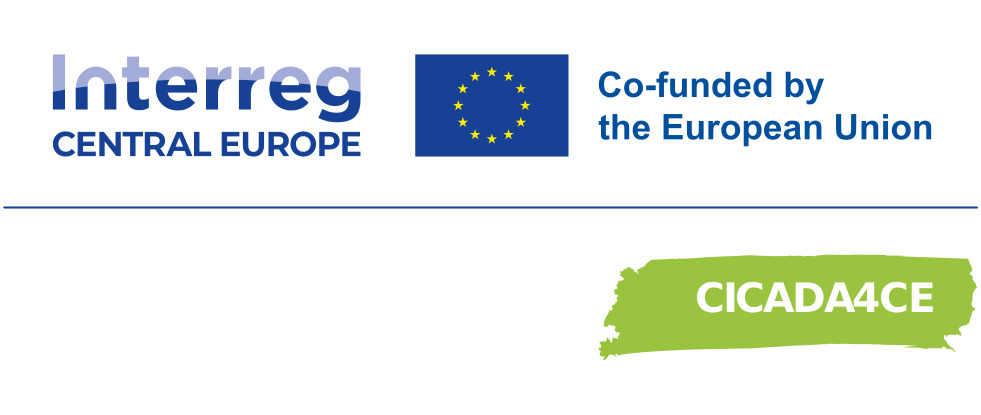

2C FIMH Twin City Future Innovation Manufacturing Hub
The main objective of this project is to formulate recommendations for a transnational innovation strategy in the manufacturing sector and to create the conditions for an innovation hub in Vienna and Bratislava. The Twin City Future Innovation Manufacturing Hub (2C FIMH) will manage the conceptualization, development, implementation and evaluation of innovative pilot activities in close cooperation with partners for more than two years. With an emphasis on the targeted transfer of innovative solutions for corporate education, support and development of start-ups, as well as small and medium-sized enterprises. At the same time, it will strive to intensify cooperation between universities, manufacturing companies and the community of creators and aspiring entrepreneurs.
To achieve effective and sustainable results, we have chosen the quadruple helix approach as a systematic basis. This approach emphasizes cooperation between companies, public organizations, universities and civil society. At the same time, expert groups will comprehensively accompany these activities.


DREAMER (Erasmus +)
The DREAMER Project (Development and Reconstruction Empowerment through Advanced Project Management Education and Research), funded by the Erasmus+ program, is a collaborative initiative aimed at transforming project management education while supporting Ukraine’s post-war recovery. Coordinated by the SPECTRA Centre of Excellence EU at the Slovak University of Technology in Bratislava (STUBA), the project unites leading universities from Slovakia, Romania, Poland, Ireland, Croatia, and Ukraine to address global challenges in sustainability, digital innovation, and education.

CICADA4CE – Efficiency of the ClImate Change ADAptation management by integration of ecosystem services and smart social approaches in Central European cities
Cities increasingly face negative effects of climate change and try to adapt. But their adaptation strategies often do not work out as planned because citizens and stakeholders are not sufficiently involved in developing these. The CICADA4CE project helps city authorities to design effective climate change policies based on the concept of ecosystem- and community-based adaptation. The partners co-create action plans with citizens and other stakeholders in urban living labs in five pilot cities. To ensure active participation and collective action the partners also train all stakeholders on climate change adaptation processes.
https://www.interreg-central.eu/projects/cicada4ce/?tab=home

Be Ready (INTERREG Danube)
The project Be Ready (UrBan hEat islands REsilience, prepAreDness and mitigation strategy) addresses the climate change capacities in the Danube Region taking into account ecosystem-based approaches. The common challenge to be tackled is urban heat islands (UHI). The recent unprecedented heat waves demonstrate the acute need to strengthen the preparedness and adaptive capacity of the society to cope with impacts of climate change and foster resilience at city level.
Be Ready aims to:
- provide local and regional authorities with research, assessment and operational instruments to better understand UHI, its drivers, and effects;
- co-create, test and validate jointly developed solutions to mitigate the UHI effects in cities;
- support partner cities to develop and adopt action plans for increased resilience to UHI effects with specific actions to promote green, blue, or white measures.

MOBILITIES FOR EU…
…is a Horizon Europe innovation project and part of the European Commission’s Climate-Neutral and Smart Cities Mission.
The project is coordinated by CARTIF and builds on the expertise of 29 partners from nine European countries, bringing a vast amount of knowledge and expertise to pave the way for urban mobility transition. To test the potential of innovative mobility technologies in real and diverse urban environments, they will be widely demonstrated in two Lead Cities, Madrid (Spain) and Dresden (Germany). Five Replication Cities – Ioannina (Greece), Trenčin (Slovakia), Espoo (Finland), Gdansk (Poland), and Sarajevo (Bosnia & Herzegovina) – intend to replicate the Lead Cities’ processes, designing their own adaptations for the tested solutions.

BISON (Horizon 2020)
The goal of the BISON project (Biodiversity and Infrastructure Synergies and Opportunities for European transport Networks) in the period from January 1, 2021 to June 2023 will be to solve the issue of integrating biodiversity with the development of transport infrastructure including roads, railways, waterways, airports, ports or energy networks.
In Europe, there is an urgent need to build infrastructure that is more sustainable for biodiversity, while ensuring its reliability and efficiency. It is necessary to adapt the existing infrastructure to new climatic conditions (floods, droughts…), as well as to find innovative and sustainable solutions to reduce the impact of invasive species and to deal with the decline of native species and the fragmentation of ecosystems. The rapid increase in the development of new transport infrastructure, especially in Eastern Europe, aims to support economic development, but at the same time it must pay special attention to local biodiversity, which is often endemic. Facing these needs, the European Union is financing a project on the topic of transport and biodiversity for the first time in the amount of 3 million euros, within the framework of the “Coordination and Support Action”. As part of the last challenges of the H2020 program, the BISON project is to lay the foundations in time for the further improvement of research on these topics in the European framework program for research for the years 2021-2027 (HORIZON EUROPE).

Making City (Horizon 2020)
MAKING-CITY, a new large-scale demonstration project funded by the EU’s Horizon 2020 research and innovation programme, has its kick-off meeting on 13-14 December in Valladolid, Spain. This 60-month H2020 project with a budget of 20 million euros, gathering 34 partners from 9 countries, aims to address and demonstrate the transformation of the urban energy system towards low-carbon cities according to the Positive Energy District (PED) concept.

SaveGREEN (Interreg DTP)
The SaveGREEN project focuses on solving the key issue of protecting ecological corridors in the Carpathians and other mountainous areas in the Danube basin. Migration corridors are currently threatened by insufficient and inadequate economic development planning. Linear transport infrastructure, urban development, intensive agriculture, forestry and water management practices often disrupt migration corridors, cause traffic accidents, reduce the reproductive success of key species and the efficiency of ecosystem services on which we all depend.
https://www.interreg-danube.eu/approved-projects/savegreen

TB LAB (INTERREG SK-HU)
The economic growth and development of the urban agglomerations of Bratislava and Győr in recent decades has crossed state borders. It also affects the natural environment on both sides of the border. The neighboring areas of Zitný ostrov (Csallóköz) in Slovakia and Szigetköz (Little Rye Island) in Hungary are of great importance in terms of nature conservation and eco-tourism. Both sides of the border area are rich in natural, cultural and landscape wealth. However, they have not only similar values, but also problems. Some are related to water management and the sustainable use of natural resources, others to the development of cities and municipalities in the suburban area and to the quality of the urban environment.